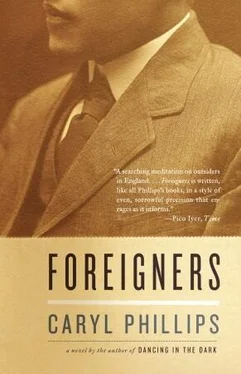On the morning of 9 July, 1951, a twenty-three-year-old mixed-race man stepped off a train at London's Paddington Station and looked all around at the cavernous vastness of the place. The youngster had visited London before, but today there was something auspicious about his arrival in the great capital city for the young man's name was on everybody's lips. Randolph Turpin was born, and had grown up, in the Midlands town of Leamington Spa, a place which, until the rediscovery of the town's mineral springs in the late eighteenth century, was little more than a tiny village called the Leamington Priors. The visit of Queen Victoria in 1838, to discover for herself the nature of the healing and restorative powers of the waters, resulted in the town being honoured and renamed Royal Leamington Spa. However, by the mid-twentieth century there were two Leamingtons; the elegant Georgian and Regency Leamington, which was a haven for the genteel and the elderly, and then an altogether less attractive working-class enclave. Turpin was a product of the less impressive face of the town. As the train which had deposited Turpin, his older brothers Dick and Jackie, and Turpin's manager, the reliable and strait-laced Mr George Middleton, continued to belch smoke, the four men stared at the press of people. A large crowd made up of journalists and the general public in equal numbers gawped back in their direction. The train was half an hour late, but Turpin's reception committee would have waited all day if necessary. A flashbulb popped, and a newspaperman's voice could be heard above the roar of the station. 'Randy!' And then another bulb popped, and another voice was raised, and then the crowd began to surge up the platform towards the new arrivants. The coloured brothers looked anxiously at each other, while George Middleton looked beyond the rush of people and tried to find his contact. And then, just as the crowd began to swarm around the Midlanders, Mr Jack Solomons appeared, complete with trilby and chewing on a cigar, and he restored some order. 'Gentlemen, please. Step back and give Mr Turpin some room.' The selfproclaimed king of British boxing slipped a paternal arm around the shoulders of young Randy, and took charge of the situation. Jack Solomons was a man who, in the parlance of the times, liked to talk fast and plenty. 'Gentlemen, you know the procedure. You'll have all the time in the world to converse with Mr Turpin later on. Now come on, please. Step aside. We don't want to wear out the young man, do we?'
As Mr Solomons' car pulled away from in front of Paddington Station, a few newspapermen ran alongside the vehicle, and a lone photographer persisted in pointing his camera at the car window and snapping away. However, once they passed through the first set of traffic lights, the journalists were left behind. On the train journey to London, Turpin, his brothers, and his manager had taken breakfast together and Randy had spilled the salt. Randy wasn't a superstitious man, far from it, but the look of alarm that crossed Mr Middleton's face gave him pause for thought. He had watched as his manager took a pinch of salt and quickly tossed it over his left shoulder. As they now sped towards the West End of London, Randy stole a quick glance at Mr Middleton, who was staring calmly out of the car window, but his manager betrayed his inner anxiety by the fact that he was biting down hard against his bottom lip. By the time Mr Solomons' car entered Piccadilly Circus the crowds in the street had begun to multiply, so much so that the driver was forced to slow almost to a halt. Suddenly, it looked as though it might not be possible to get much closer to Jack Solomons' gymnasium and offices at 41 Great Windmill Street, but two policemen on horseback began to clear a way through the crowds and inch by inch the car made its way forward until it was able to deposit them all at the rear entrance to the building. However, even here crowds of autograph hunters were waiting, but Turpin could tell by the hurried manner with which Mr Middleton and Mr Solomons kept glancing at each other that there would be no time to fraternise with his fans. They both wanted Turpin calm and settled for tomorrow's date with destiny, and the legendary Sugar Ray Robinson.
The following lunchtime, Turpin's opponent, along with his retinue of handlers and hangers-on, arrived at the 'Palace of Jack', as Solomons liked to call his gymnasium and suite of offices. Sugar Ray Robinson was born Walker Smith in Ailey, Georgia, in 1921, and he grew up in Detroit, Michigan. As a teenage amateur he won the Golden Gloves featherweight title, and people were already talking about him as a potential great champion. However, just how 'great' he would become none of them could ever have imagined. He made his official professional debut in 1940 as a welterweight, and he soon won the 147 lb world title. He then stepped up to fight as a middleweight and he also won the world title at 160 lb. By 1951, Sugar Ray Robinson had fought 133 professional fights and lost only once, to Jake La Motta. However, this was a defeat that he soon avenged in a rematch. Ray Robinson was a worldwide celebrity whose very name conjured up notions of both invincibility and flamboyance, and his fame was such that only a few weeks earlier, on 25 June, 1951, he had appeared on the cover of Time magazine. Having dispatched all of his American opponents, Robinson had recently taken to trailing Europe for fighters who would provide him with big paydays and easy victories, and when Robinson toured he did so in style. He drove a huge flamingo-pink Cadillac convertible and he stayed in only the swankiest accommodation. His entourage of boosters included his manager, his doctor, a golf pro, a hairdresser, a spiritual adviser, and a midget comic, or 'good humour' man, named Jimmy Karoubi, among many others. Awed by legendary tales of the Sugarman's extraordinary skill, and by the evidence of the maestro's oozing confidence, his opponents were generally beaten before they had even ducked their heads through the ropes. Very few doubted that Robinson was, pound for pound, the greatest fighter who had ever lived, and at thirty he was at the peak of his career.
It was Jack Solomons, Britain's pre-eminent promoter, who had persuaded Robinson to add a final date to his latest European tour and cross the English Channel in order that he might fight young Turpin and put his world middleweight title on the line. Solomons was born in 1900 in the East End of London, but this Yiddish-speaking cockney was not the most popular man in British boxing, combining as he did the 'talents' of thuggishness and business cunning. However, Solomons was a man who could get matches made. Robinson was undertaking a series of non-title exhibition fights in Zurich, Antwerp, Liege, Berlin, and Turin, and initially the American had little interest in risking his title in London against an unknown, unless, of course, the money was right. Solomons travelled to Paris, where Robinson's entourage was resting before moving on to Belgium, and he asked Robinson to name his price. Robinson laughed and told him '$100,000 and not one cent less', and a disappointed Solomons returned to London. This sum, which was the equivalent of nearly £30,000, was unheard of at a time when the vast majority of British workers earned less than £5 a week. However, Solomons was a man who relished a challenge, and having been in the company of the great Sugar Ray he was now more determined than ever to make this match. Solomons worked and reworked his figures, and then persuaded Turpin's manager, George Middleton — a man who he described as 'one of the most reasonable men in the world to do business with' — to accept £12,000, which was less than half of what Robinson would earn. Finally, he returned to Paris with contracts in hand, and a smiling Sugar Ray Robinson signed to fight Britain's own Randolph Turpin for the world middleweight crown. Jack Solomons would be promoting the biggest bout in British boxing history, and the great Sugar Ray Robinson would be bringing his flamingo-pink Cadillac and flamboyant personality to post-war Britain.
Читать дальше











![Unknown - [Carly Phillips] The Bachelor (The Chandler Brothe(Bookos.org) (1)](/books/174132/unknown-carly-phillips-the-bachelor-the-chandle-thumb.webp)
